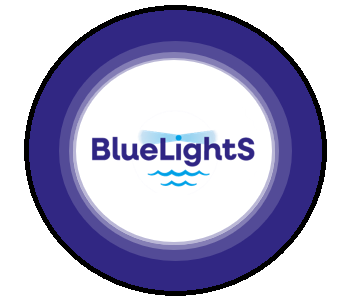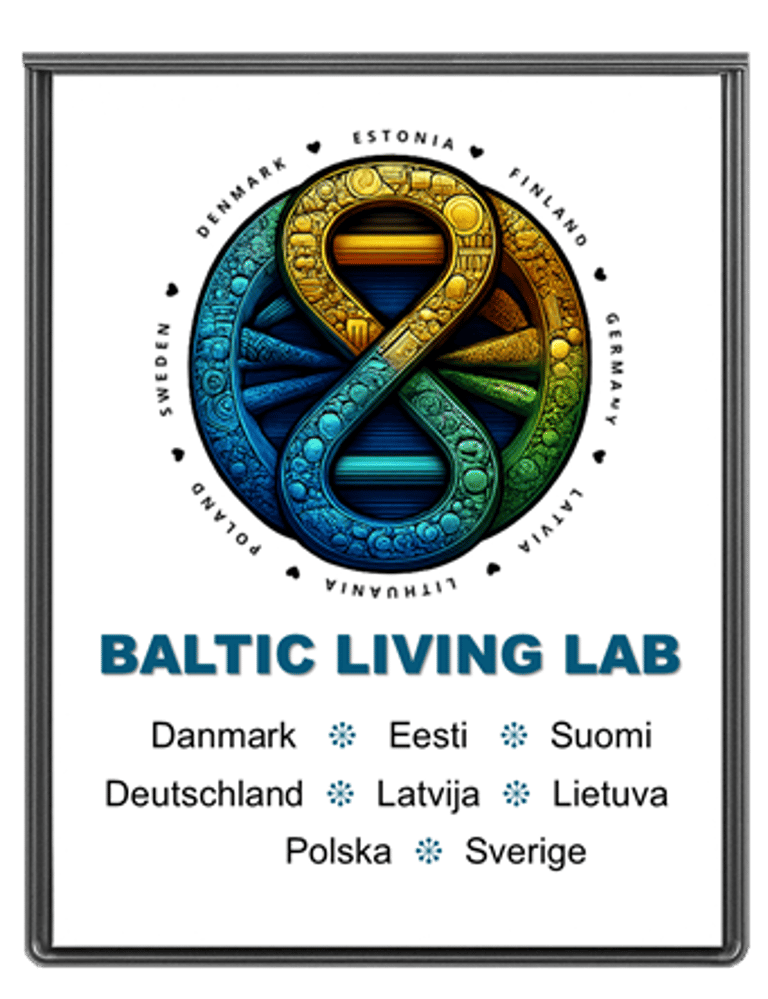Predicting the future by re-imagining the present
Convening the multiple-helix for problem-solving of SHARED environmental challenges FACING the baltic sea region
Active Applications
Send us a note of inquiry on joining these applicant consortia
A toolbox for public authorities to address marine plastics and litter from river-to-ocean
Enhance soil health in Continental, Boreal and Alpine biogeographical regions
Food waste prevention and reduction at household level - monitoring and new technologies
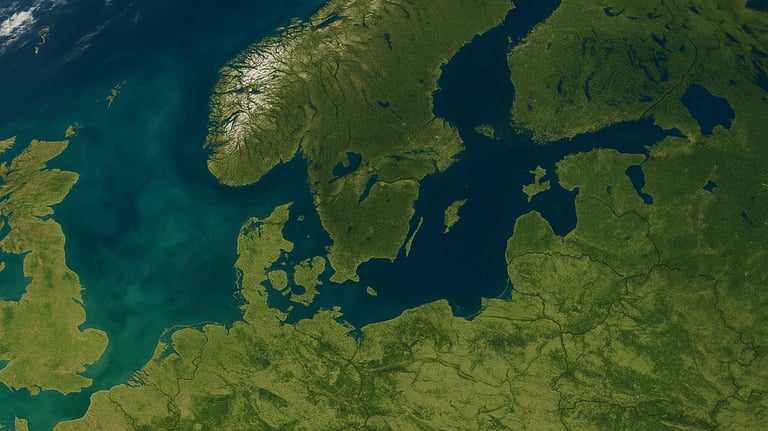

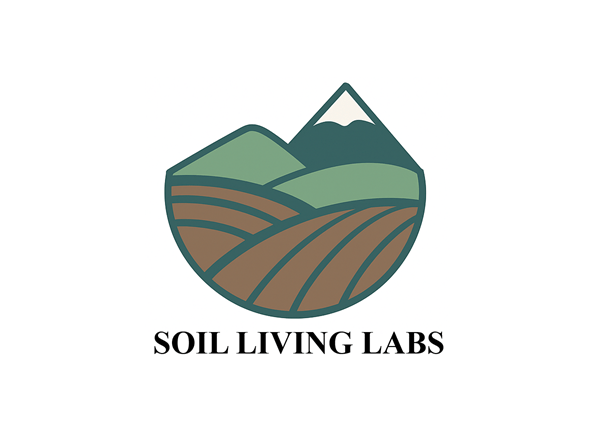

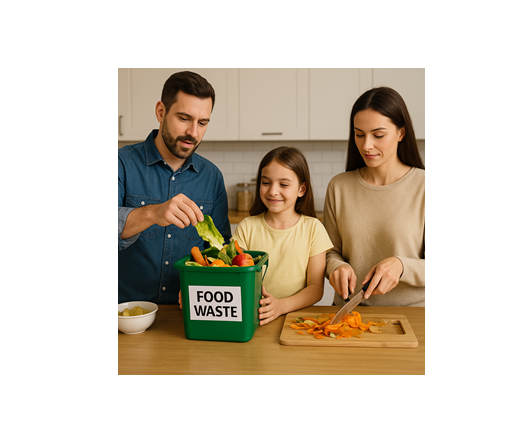

EU Mission Lighthouse Support
HORIZON-MISS-2025-03-OCEAN-07
Sing the Blues
ERASMUS-EDU-2025-PEX-COVE Centres of Vocational Excellence
COVE BLUEEI
Erasmus+ Teacher Academies
Combating Aquatica Incognita with Blue Literacy and Sustainability Instruction
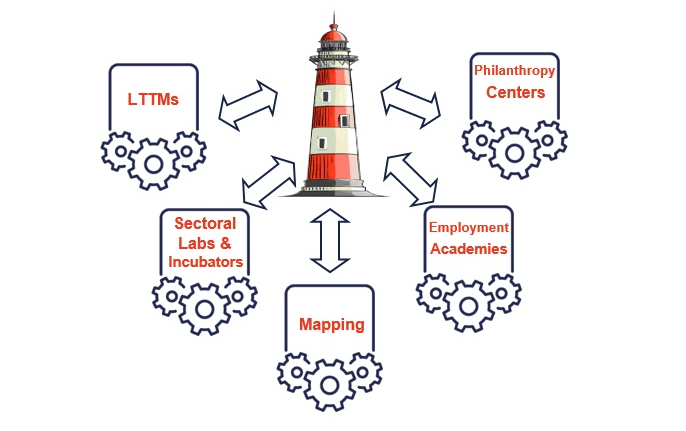

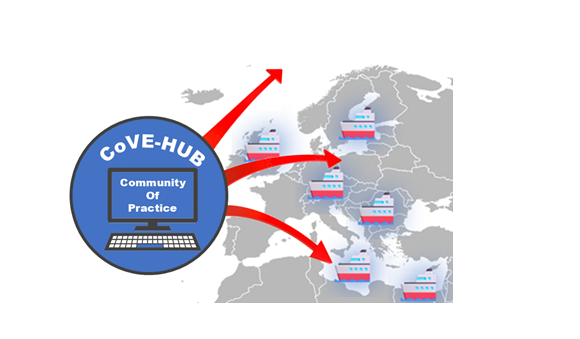

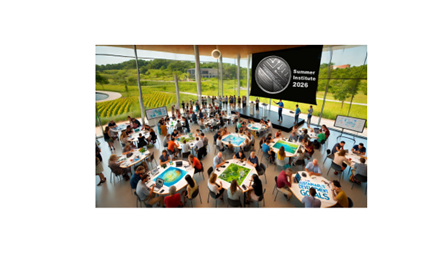

Join the basin-wide campaign for clean rivers, healthy seas:
HORIZON-MISS-2025-03
Calling municipalities from the Baltic/North Sea Basin with an invitation to join our applicant consortium
Municipalities at the Frontline of Tackling Plastics from River to Ocean
A toolbox for public authorities to address marine plastics and litter from river-to-ocean


Action : HORIZON Innovation Actions
Application Deadline : 24 septembre 2025
Call : Supporting the implementation of the Restore our Ocean and Waters Mission
Call Identifier : HORIZON-MISS-2025-03
Understanding and tackling the inland sources, pathways, distribution and cumulative impacts of marine litter and plastic pollution into the ocean is fundamental to reduce the overall anthropogenic impact on our ecosystems and to guide the process towards the Mission’s 50% plastic litter reduction target in European water systems.
The overall aim of the activities under this topic is to co-design with relevant public authorities and public service providers, as well as other interested parties the most appropriate tools and solutions to address marine litter and plastic pollution according to a land-to-river-to-sea approach at basin level.
The main deliverable of funded projects under this topic will be a toolbox providing evidence-based data and information on sources, pathways, distribution and cumulative impacts of marine litter on ecosystems and water quality, including plastics and information on related hotspots and areas of accumulation, together with a set of demonstrated, sustainable and environmentally sound removal solutions, as well as measures to prevent litter and plastics reaching the sea.
Work should focus on inland waters (including deltas and coastal areas), where, in the absence of systematic monitoring of plastic litter, data and standardised methodological tools and techniques for collection, identification, classification and quantification of plastic pollution are most urgently needed. Activities are also expected to enhance cross-border cooperation and coordination at different levels, national, regional, local.
All the following components are expected to be embedded in the toolbox:
- Marine litter monitoring and data collection to detect, identify and characterise major sources and pathways, hotspots and areas of accumulation of riverine litter, as well as cost-effective quantification of litter presence and fluxes, both above and below water. Relevant data collected through these actions should follow the New guidelines for a common approach to tackle marine litter of the MSFD Technical Group on Marine Litter and be made openly available through the European Marine Observation and Data Network (EMODnet);
- A set of suitable and cost-effective innovative solutions for the sustainable and environmentally sound removal of plastics litter in rivers and inland waters, leading to reduction of litter in sea basins, without harming living organisms;
- Measures to engage with society and relevant industrial sectors, including the fishing industry, to prevent plastic litter reaching the sea (e.g.: good practices; awareness raising campaigns, community-led actions, education schemes, audio-visual campaigns, proper waste management) and to support the uptake of innovative solutions, thus driving environmental improvements and transformative changes.
Each proposal should identify explicitly the basin being addressed, i.e.: 1. Atlantic and Arctic sea basin or 2. Mediterranean Sea basin or 3. Baltic and North Sea basin or 4. Danube River basin, including Black Sea. Only one basin per proposal should be addressed. Activities should be tailored to address regional/sea basin specificities.
The effectiveness and efficiency of the toolbox should be demonstrated through at least 3 use-cases in three different countries per basin, in the most relevant identified sites, such as river deltas, important source-sites of litter or other strategic points for litter removal and with the involvement of different users (e.g.: regional authorities, municipalities, entities managing waterbodies) .
To address the impact-driven approach of the Mission and the nature of Innovation Actions, projects are expected to work with and engage at least 3 ‘associated regions’ to showcase the effectiveness of the toolbox and develop a replication plan for its uptake in the associated regions. For this reason, beneficiaries may provide Financial Support to Third Parties (see the Specific Conditions table for this topic) to implement the 'Associated regions' scheme. An ‘Associated region is represented by local/regional authorities/public bodies. The aim of the Associated Region scheme is to support the replication of innovative solutions and/or to build capacity at local level in order to address plastic litter according to a land-to-river-to-sea approach. The projects should ensure that the 'Associated regions' are not already involved in the use cases covered by the projects. The partners should proactively reach out to the 'associated regions' to enable them to follow closely the project and its activities. The projects should continuously share their outcomes and knowledge with those ‘associated regions’ and provide them with technical assistance to build capacity and to implement in their territory the approach they developed. Proposals must outline the selection process of the third parties to which financial support would be granted in accordance with the specific conditions of this topic, the requirements of the Financial Support to Third Parties application template and part B of the General Annexes to this work programme. The involvement of 'Associated regions' through the Financial Support to Third Parties, as described above, is a key element of the proposed action.
Should the actions include the development of digital tools, to support the monitoring, data collection, forecasting and decision-making regarding marine litter at local level, interoperability with the work done in the EU Digital Twin of the Ocean and storage in the digital platform are required, as a means of continuity, creating synergies and exchanges and ensuring legacy.
The projects selected under this topic are expected to cooperate and exchange among themselves as well as with relevant projects arising from previous topics implemented under Mission ocean and waters (e.g.: HORIZON-MISS-2022-OCEAN-01-04), the Plastic Pirates project, with the WATER4ALL partnership, relevant Interreg projects as well as projects that will be funded under the topic HORIZON-CL6-2025-01-ZEROPOLLUTION-05: Towards a comprehensive European strategy to assess and monitor aquatic litter including plastic and microplastic pollution and HORIZON-CL4-SPACE-2025-01-46: Innovative Earth observation services in support of maritime litter detection and ship source pollution policies. Proposals are encouraged to consider, where relevant, the services offered by European research infrastructures[[The catalogue of European Strategy Forum on Research Infrastructures (ESFRI) research infrastructures portfolio can be browsed from ESFRI website - https://ri-portfolio.esfri.eu]].
Cooperation with the EU Outermost Regions[[https://ec.europa.eu/regional_policy/policy/themes/outermost-regions_en]] is encouraged, given these regions’ natural assets.
Supporting the implementation of the SOIL DEAL FOR EUROPE MISSION
Living labs to enhance soil health in Continental, Boreal and Alpine biogeographical regions
HORIZON-MISS-2025-05-SOIL-01-two-stage
The Mission Soil proposes the deployment of living labs as a novel approach to research and innovation in soil health
Living labs have the potential to facilitate a green transition by involving multiple actors in real-life sites within a local/regional setting to co-create soil health solutions and achieve large-scale impacts on soil health and soil governance. Projects funded under this topic should deploy a number of living labs to expand and complement the network of soil health living labs initiated in previous Mission Soil topics to gradually establish 100 living labs and lighthouses to lead the transition towards healthy soils by 2030.
Soil health living labs are long-term collaborations between multiple actors to address common soil health challenges in real-life sites at local or regional level[[In this topic, it is recommended to define the living labs location using the NUTS2 division, 10 to 20 sites in each living lab. Depending on the level at which each living lab operates and the specific context (e.g. land use covered or soil health challenge addressed), applicants can exceptionally propose living labs with fewer sites. Living labs can address soil health challenges in or across different land uses (agricultural, (peri-)urban, (post)-industrial, forest and (semi-)natural). Individual sites can be farms, forest holdings, urban green[[By urban green areas, we refer to green spaces in cities such as parks, gardens, green roofs or walls, green corridors, squares, recreational areas, etc.]] areas, industrial areas, etc., where work is carried-out and monitored under real-life conditions. Sites that are exemplary in their performance in terms of soil health improvement and serve as places for demonstration of solutions, training and communication are lighthouses. Lighthouse sites can be part of a living lab or be situated outside a living lab. Projects funded under this topic are expected to kick-start participatory process or build on existing ones. While normally projects run for four years, the duration of the projects should accommodate longer timescales required to establish participatory processes and/or for soils processes to take place.
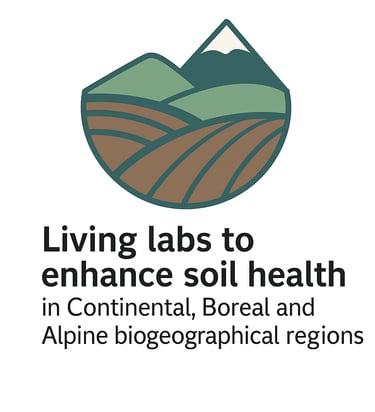

Action : HORIZON Innovation Actions
Application Deadline : 4 septembre 2025
Call : Living labs to enhance soil health in Continental, Boreal and Alpine biogeo-graphical regions
Call Identifier : HORIZON-MISS-2025-05-SOIL-01
Actors working on common shared soil health challenge(s) within and across the living labs of the same project, will be able to compare results, exchange good practices, validate methodologies, replicate actions and solutions and benefit from cross-fertilisation, thereby accelerating the transition towards the shared objective of improving soil health.
More specifically, each of the proposals should:
Support the setup of four to five living labs at regional or local level in the Continental, Boreal or Alpine biogeographical region[[ Biogeographical regions in Europe according to the European Environmental Agency.]], to work together on common shared soil health challenge(s). Proposals should clearly indicate which of one of these three biogeographical regions they focus on, and should establish the majority of the living labs within the chosen biogeographical region. However, the remaining living labs can be still located in other biogeographical regions outside of the one selected. The living labs should work on relevant soil health challenges in the selected biogeographical region. The living labs should be located in at least three different Member States and/or Associated Countries. Proposals should explain the rationale and mechanism for cooperation within and across the living labs and explain how the work undertaken will contribute to one or more of the Mission’s specific objectives[[Mission Soil specific objectives: reduce land degradation relating to desertification; conserve and increase soil organic carbon stocks, no net soil sealing and increase the reuse of urban soils; reduce soil pollution and enhance restoration; prevent erosion; improve soil structure to enhance habitat quality for soil biota and crops; reduce the EU global footprint on soils; increase soil literacy in society.]]. Proposals with all living labs located in brownfield areas[[See definition of brownfield areas under topic HORIZON-MISS-2025-SOIL-01-02]] are excluded from this topic as a dedicated topic is opened in this work programme (HORIZON-MISS-2025-SOIL-01-02: Living Labs for soil remediation and green redevelopment of brownfields).
Establish an interdisciplinary, participatory and multi-actor approach in the living labs to co-design, co-develop, and co-implement locally adapted solutions for the common shared soil health challenge(s) taking into account relevant soil health drivers and pressures[[See Soil Needs and Drivers of Change Across Europe and Land Use Types - Booklet from PREPSOIL project]]. Proposed solutions should be adapted to the different environmental, socio-economic and cultural contexts in which the living labs are operating.
Establish for each living lab a baseline of the soil conditions to allow for an accurate co-assessment of the changes in the different sites over time, and to monitor soil health improvements. The set of soil health indicators/descriptors presented in the proposal for a Directive on Soil Monitoring and Resilience should be used, as a basis; proposals may complement with additional indicators depending on the soil health challenge(s) addressed, pedoclimatic conditions, land use, etc.”
Monitor and evaluate the effects of the proposed solutions on soil health and associated ecosystem services, demonstrating their viability - technical, social, economic, cultural and environmental - scalability and transferability to diverse contexts.
Identify sites that demonstrate high performance and that may be converted into lighthouses. This can be performed both at proposal stage or later on, during the living lab operation.
Propose strategies (e.g. financial, organisational) to ensure the long-term sustainability of the established living labs beyond the Horizon Europe funding. Strategies should include the identification of possible business models and actions involving a mix of public or private funding schemes, financial instruments, cooperation with local authorities, engagement of social economy entities, social enterprises, business communities, SMEs, as well as attracting investors and entrepreneurs.
Food Waste Prevention and Reduction at household level
HORIZON-CL6-2025-02-FARM2FORK-04-two-stage
Fair, healthy and environment-friendly food systems from primary production to consumption
Successful proposals will be in line with the European Green Deal priorities, the revised Waste Framework Directive and the EU’s climate targets for 2030 and 2050. Actions will also be in line with the overall challenges highlighted in the updated Food 2030 pathways for action report published in December 2023[1] on food waste and resource efficient food systems.
Project results are expected to contribute to all of the following expected outcomes:
successful implementation of the harmonisation of food waste measurement across Europe, supported by the development of new tools, and testing of existing ones, producing reliable and comparable data on food and waste at household level;
alleviate the burden of reporting of household food waste data for Member States, by making use of technological innovations;
understand the underlying causes of food waste at household level to help policymakers and stakeholders develop more efficient interventions;
contribute to Members States’ reporting on their national food waste levels, in line with targets set by the Waste Framework Directive revision, with positive impacts on the reduction of food waste at household level, thereby reducing greenhouse gas emissions and pressure on natural resources.
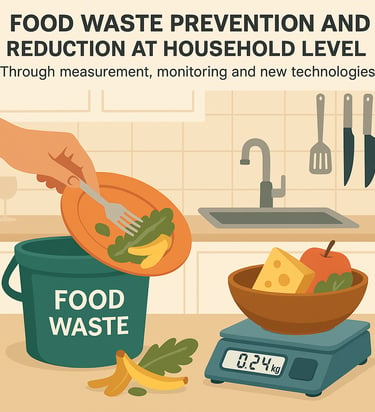

Action : HORIZON Innovation Actions
Application Deadline : 4 septembre 2025
Call : Research and innovation for food waste prevention and reduction at household level through measurement, monitoring and new technologies
Call Identifier : HORIZON-CL6-2025-02-FARM2FORK-04
In the EU, over 59 million tonnes of food waste (132 kg/inhabitant) are generated annually[[ Eurostat (2024), Food waste and food waste prevention – estimates, https://ec.europa.eu/eurostat/statistics-explained/index.php?title=Food_waste_and_food_waste_prevention_-_estimates]], with an associated market value estimated at 132 billion euros.
Eurostat roughly estimates that around 10% of food made available to EU consumers (at retail, food services and households) may be wasted. At the same time, in 2023, 9.5% of the EU population could not afford a meal with meat, chicken, fish or vegetarian equivalent every second day[[ Eurostat (2024), Inability to afford a meal with meat, chicken, fish (or vegetarian equivalent) every second day, https://ec.europa.eu/eurostat/databrowser/view/ilc_mdes03/default/table?lang=en]]. In the EU, households generate more than half of the total food waste (54%).
Wasting food is not only an ethical and economic issue but it also depletes the environment of limited natural resources. Food waste has a huge environmental impact, accounting for about 16% of the total greenhouse gas emissions from the EU food system. Therefore, by reducing food waste we can also support the fight against climate change.
Proposals should contribute to all of the following aspects:
develop and validate new tools and methods, and/or further test existing methods (including those developed by previous EU-funded projects), to measure and estimate food waste at household level, including the food waste discarded as or with wastewaters and that would help distinguish between amounts of avoidable (edible) fraction of food waste and non-avoidable (inedible) food waste. The potential of AI and other technologies (including ones that are currently available) to simplify the collection of data and the reporting (by being integrated in advanced monitoring solutions) should be considered. Interoperable metadata standards accompanying indicators coming from these new tools and methods should be provided. The metadata standards for edible and inedible food waste indicators should allow data to be federated through the European Open Science Cloud (EOSC) infrastructure;
these new tools and methods should be applied across a large enough sample of diverse type of products and target groups (in terms of gender, age, socio-economic status, ethnic and/or cultural origins, etc.), allowing for a more precise assessment of food waste fractions (edible and inedible), across several years and in a significant number of Member States, and potentially in Associated Countries. This should generate robust measurement/estimation of food waste at household level for different target groups, at national level. The potential for extensive uptake of the proposed solution should be clearly highlighted;
in addition to measurement, the direct and indirect drivers and root causes of food waste at household level should be thoroughly investigated. Particular attention should be paid to the identification of consumer behaviours (food consumption and disposal patterns) and other factors that influence food waste at household level, to assess the potential for a reduction strategy based on change in consumer behaviours.
In addition, proposals could explore eco-friendly, low-input and efficient technological solutions to prevent edible food from being discarded in households, e.g. by preventing product degradation.
The required multi-actor approach must be implemented by conducting inter- and trans-disciplinary research and involving a wide diversity of food system actors, with special attention paid to consumers and civil society organisations.
Proposals are encouraged to build on past or ongoing EU-funded research (in particular, the EU-funded CHORIZO and WASTELESS projects, expected to be finalised in 2025) and on the work carried out by the European Consumer Food Waste Forum[[ https://knowledge4policy.ec.europa.eu/projects-activities/european-consumer-food-waste-forum_en]], and create synergies with relevant initiatives including the EU Platform on Food Losses and Food Waste.
This topic should involve the effective contribution of SSH disciplines. Citizen science is encouraged at all stages of the research activities for this topic and should be integrated in the research methodology. Proposals should take into account and address inequalities (e.g. by addressing the risk of AI bias in terms of gender, disability, ethnicity, etc.).
Connect
Collaborate
info@BalticLivingLab.org
© 2025. All rights reserved.
Views and opinions expressed are those of the author(s) only and do not necessarily reflect those of the European Union or the European Commission.
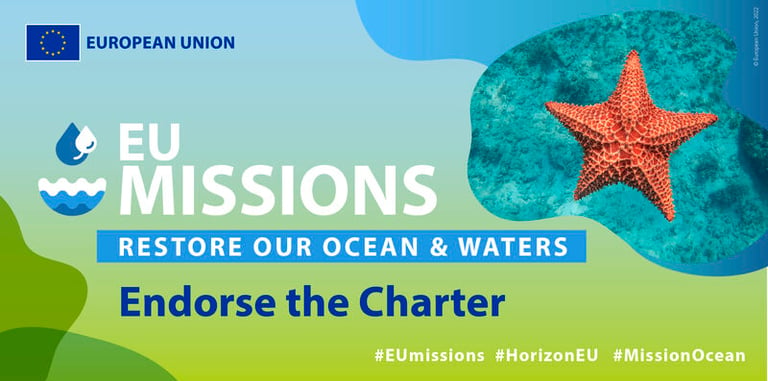

In Support of the EU Mission Ocean
Created and supported by
Global Skills Network, Estonia,
as a resource hub for the
Horizon sister projects,
three Mission Ocean and Waters
projects funded by the EU’s
Horizon Europe Research & Innovation
Program.
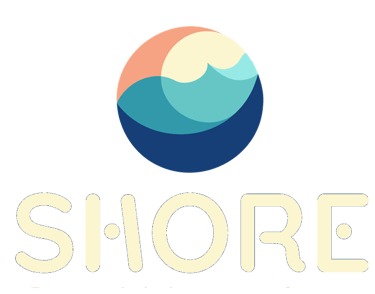

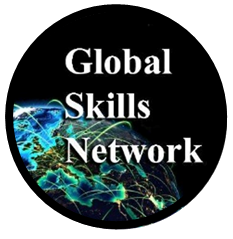

PRO-BLEU
